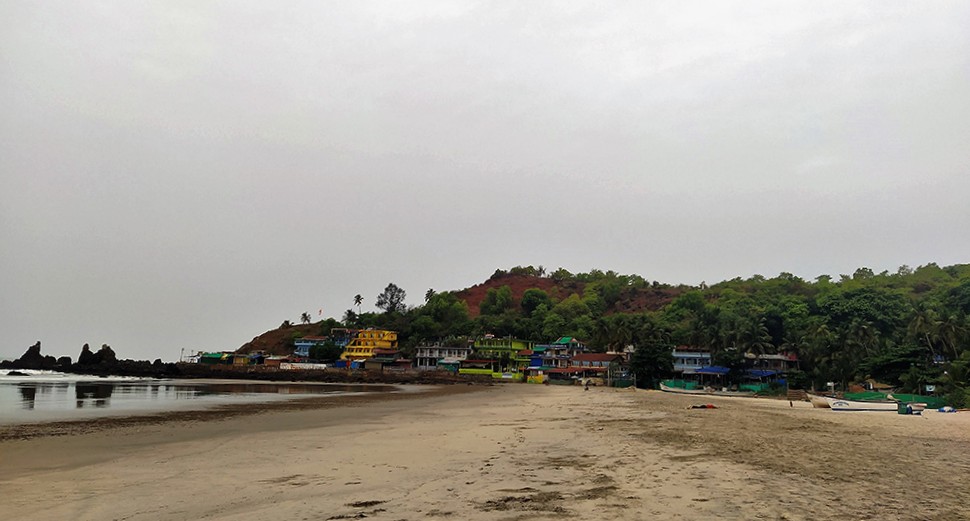
Goa’s villagers struggle with fewer tourists
As if the COVID pandemic weren’t bad enough, the Russian war deals a harder blow to Goa’s tourism, forcing tourism-dependent villagers to find new means of income.

As if the COVID pandemic weren’t bad enough, the Russian war deals a harder blow to Goa’s tourism, forcing tourism-dependent villagers to find new means of income.
The flurry of tourists swimming in Goa’s sea and lakes, promenading through its small lanes full of cafes and clothing stalls has turned to a trickle. And with their departure so goes the livelihoods of people in nearby villages that thrive entirely on the influx of tourists, Russians in particular.
Arambol resident Nilesh Naik has been running a flourishing guesthouse since 2001. Today it is vacant. And the few tourists that pass through want to pay a fraction of the actual tariff.
“I have seven fully-furnished rooms which have been lying shut for the last two years. I got clients exactly for three days in 2021. Tourists want to pay just Rs 300 per night,” said Naik.
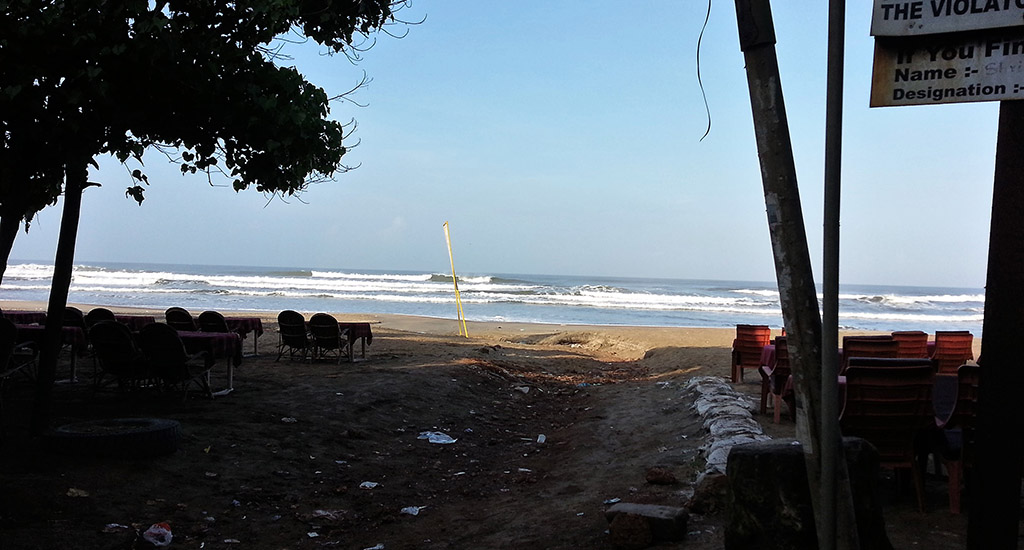
One can understand the impact of the pandemic and the ensuing lockdowns on the tourism industry in Goa. But who would have thought that the Russian war against Ukraine would also affect the livelihoods of villagers in Goa?
Goa, which normally gets between 3 and 4 lakh tourists from Russia and nearly 40,000 from Ukraine annually, has seen a drastic reduction in those numbers.
Now there is only one chartered flight from Russia every 10 days and one flight a week from Kazakhstan.
And, understandably, there have been no flights from Ukraine throughout this season.
Morjim village is also known as Little Russia because of the Russian immigrants living there and the Russian tourists who visit.
Arambol, Querim aka Keri, Mandrem, Anjuna and Morjim villages lie in North Goa where it isn’t surprising to find landscapes entirely catering to a Russian population.
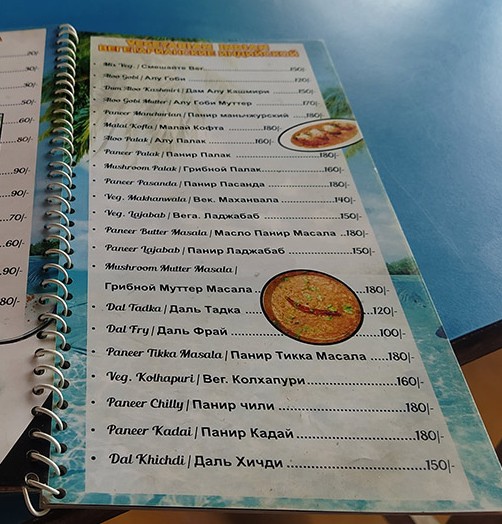
The names of restaurants, bars and shops – even bar menus – are in Russian. After all, few Russians could read English even though they understood the language.
The villagers preferred leasing or renting out their places to Russian tourists as they spent most of their time at the beach and hardly used the premises. This meant less wear and tear, less water use and so less maintenance cost.
Arambol has been traditionally a fishermen’s village whose economy persists almost entirely on tourism, with fishing done mostly for domestic use.
Now the only sights on these beaches are of village fishermen catching mudfish in the wet sands as the waves recede in the morning and stray dogs frolic with abandon.
Arambol, much like Querim, had tailor-made its village homes for the Russian tourists. The owners lease their premises to non-Goans from other states, who in turn, run the place.
Now, without the Russian tourists, for Morjim’s villagers there’s little to earn by way of renting out property or vehicles.
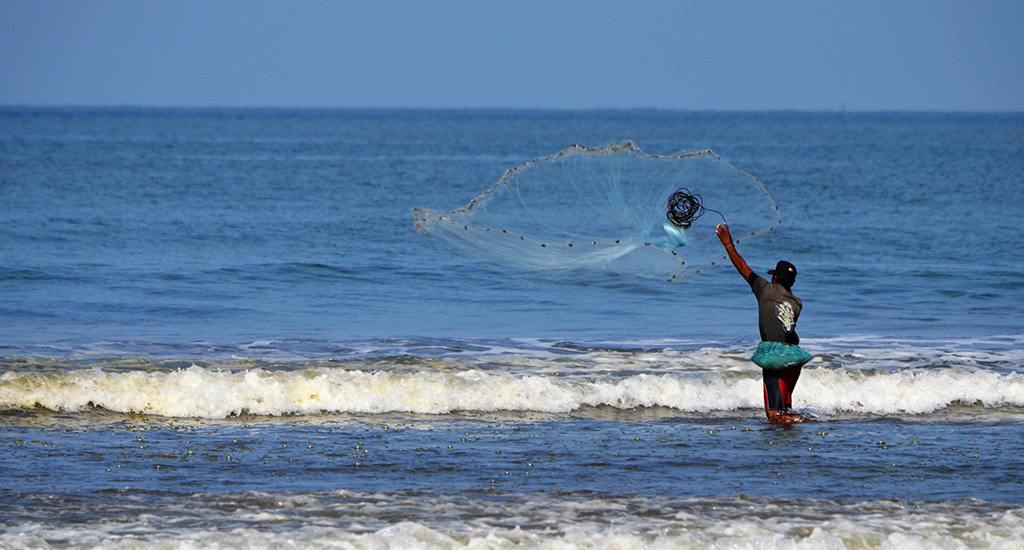
“Most locals fail to get good deals. So they’re not giving their properties on rent. They are doing their own business, however modest,” says Pradeep Palyekar, who runs a liquor outlet in his property.
Taxi-driver Devidas Naik owns two taxis, both bought on loan.
“The banks had promised to waive the loan but reneged later,” he said. “There are no foreign tourists. I make small trips for locals for small distances. So I hardly make any profit.”
Faced with the pressure of impending loans for homes and vehicles, the villagers have been forced to find ways to survive.
Arambol’s villagers who work in tourism would usually only fish to catch food for their families. But now they are having to sell what they catch to earn money.
With almost no tourists now, people in the villages of Arambol, Paliyem, Querim and Morjim, who thrived on giving their property and vehicle on rent, are now scrounging for options to pay off surmounting loans and soaring bills.
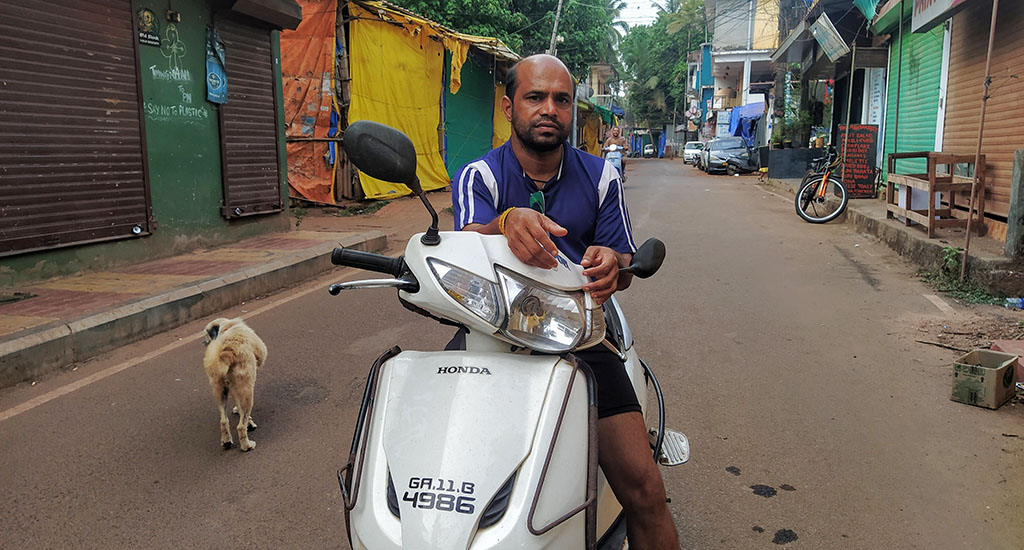
Like most overseas Goans returning home during the pandemic exodus, Arambol’s Babu Bankar realised there was no work at all when he returned. And, for the work available, he didn’t have the necessary qualifications. Today he runs a vegetable shop.
“With tourism at a low, there’s little left for me to do but sell vegetables,” he said. For now he is not even bothered about making a profit – he is just happy if he doesn’t suffer losses.
While some are calling on the government to step in and do more to help Goans during this tough time, others like Uday Palyekar, who has been running a general store near Arambol, disagree.
“It’s time the locals learnt to be self-reliant and stop depending on tourists or the government,” he says.
The lead image at the top of this page shows the empty approach zone to Sweet Water Lake that normally teems with tourists (Photo by Gajanan Khergamker)
Gajanan Khergamker is a Mumbai-based independent writer, solicitor and filmmaker.